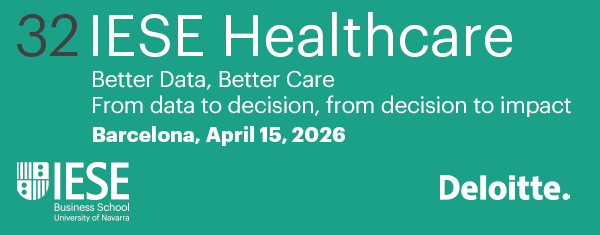
IESE Insight
How to save a life: medical data donation in an age of privacy concerns
When the ethics of giving meet the ethics of privacy, it’s important to be transparent.
We’ve all heard of donating blood, and many of us have probably done it, but what about donating data?
Sharing personal medical data is a powerful act of generosity — one that could save lives and drive groundbreaking research. Unlike blood donation, it requires no needles, but it does demand something equally personal: your privacy.
Among the most sensitive information an individual can share, medical data donation raises critical ethical and economic questions. Data breaches can lead to identity theft and fraud, and anonymization techniques aren’t always foolproof. Yet the potential benefits to society are undeniable. Privacy expert Tawfiq Alashoor and co-authors Mark Keil, Zhenhui Jiang and Kambiz Saffarizadeh investigate how data donation can be encouraged, both through privacy safeguards and by boosting a sense of social responsibility.
The privacy trade-off
Inspired by the principles of organ donation and the growing role of data and AI in scientific breakthroughs, organizations like Open Humans and Count Me In are encouraging patients to share medical, demographic and behavioral data to further medical research. The COVID-19 pandemic accelerated this trend: society responded to a global crisis in much the same way locals will rush to give blood after an emergency.
But outside of emergencies, what drives willingness to donate data? What hinders it?
The psychology and economics of sharing personal information has been widely studied in the context of social media, where people often trade privacy for personal benefits like building a brand or connecting with others. But with medical data sharing, the primary benefit is societal, rather than personal.
As such, the study identified empathy as a trigger for mitigating privacy concerns, as it tipped people toward a broad societal focus for their actions, rather than their own privacy risks. This makes sense: it has long been known that giving triggers the brain’s reward system, and that doing good can be a powerful motivator.
Companies hoping to collect medical data for prosocial medical research should lean into this impulse — honestly, the authors insist — and emphasize both the social impact of giving data and the implicit personal rewards (the “warm glow” of giving).
The study also considered whether simply tightening privacy protections would encourage data donation. They found that while mentioning both the social benefits and the privacy controls together did decrease user reluctance to donate data, it wasn’t as effective as simply attempting to boost empathy. It makes sense, as many people inspired by the choice to do good with their data might not have previously considered privacy to be an issue at all, and being reminded about it can have a dampening effect and induce them to be cautious.
Interestingly, this pattern holds even among those who are deeply concerned about privacy. When societal benefits are made clear — whether implicitly, by evoking empathic concern, or explicitly, by directly stating the potential impact on others — privacy concerns tend to weaken.
Why charities and medical research groups shouldn’t overdo it with empathy
Naturally, with findings like these, those who wish to reap societal benefits with data donation may be tempted to aggressively leverage empathy. Alashoor cautions against this. “While it might seem justified to use such tactics for the greater good, it’s essential to avoid designing apps or systems that manipulate individuals into disregarding their privacy concerns,” he says. “Practices like these are often called ‘dark patterns’ in data collection, and they can undermine trust and ethical integrity.” Moreover, empathy-driven appeals can decline after repeated exposure, known as empathy fatigue.
Instead of resorting to psychological nudges that erode trust, consider simplifying the decision-making process — by using design features that require less cognitive effort, for example — to boost baseline donation rates without manipulating the public.
“To foster sustainable engagement, data donation organizations should distinguish themselves from social media platforms by prioritizing transparency,” Alashoor says. Clearly communicating any psychological cues, choice architecture or implicit influences in the decision-making process can ensure that people trade their privacy on their own terms.
For managers in healthcare, tech and nonprofit sectors looking to encourage ethical data donation, the path forward is clear:
- Build trust through transparency, not manipulation.
- Emphasize the real-world impact of donated data with authentic, empathy-driven messaging — but don’t overplay it.
- Pair these emotional appeals with simplified, low-friction design choices that make saying “yes” easy, conscious and intuitive.
- Most important, clearly communicate privacy protections and the reasoning behind your approach.
Done right, this balances the urgency of medical progress with the respect individuals deserve over their personal information.
MORE FROM THIS PROFESSOR
Beware of digital zombies: Manage the threats to your online privacy
Read this before you click “accept all”
15% off with the code INSIGHT15


